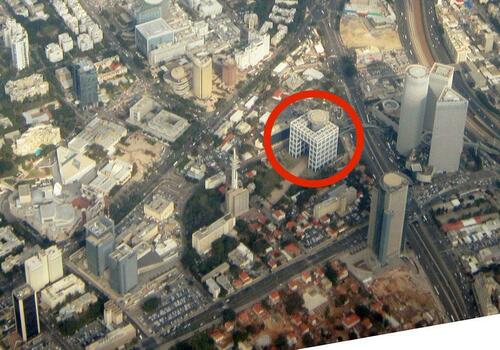"In Lebanon, there will be no ceasefire and no pause. We will continue to strike Hezbollah with full force until our war objectives are achieved." Those are the words of Israel's new Defense Minister Israel Katz, issued Tuesday. The Biden administration has still been touting that it is working hard on a ceasefire.
"Israel will not agree to any arrangement that does not secure its right to independently enforce and prevent terrorism, achieve its war objectives in Lebanon, disarm Hezbollah, push them back beyond the Litani River, and allow northern residents to safely return to their homes," he added. The statement was given the same day that Lebanon's government announced that over 100 Israeli airstrikes were recorded on the country in the prior 24 hours.

Tuesday night, Lebanese authorities said that 17 people were killed and 21 injured in Israeli airstrikes on the central and southern towns of Baalchmay, Joun, Rumin, and Al-Maali.
More were killed in what were widely described as some of the heaviest daytime strikes on Beirut of the war, per the Associated Press:
Another Israeli strike on an apartment building east of Beirut killed at least six people. Wael Murtada said the destroyed home belonged to his uncle and that those inside had fled from the Dahiyeh last month. He said three children were among the dead and other people were missing.
An Israeli airstrike on a residential building in central Lebanon killed 15 people, including eight women and four children, and wounded at least 12 others, Lebanon’s Health Ministry said. The strike came without warning, and state media said the building was sheltering displaced families.
On the Israeli side, rockets from Lebanon have continued into northern towns at unrelenting pace. Reuters has said that about 100 Israeli civilians and soldiers have been killed since the start of the conflict:
Since hostilities erupted a year ago, Israeli attacks have killed at least 3,287 people in Lebanon, the majority in the last seven weeks, according to the Lebanese health ministry. Its figures do not distinguish between civilians and combatants.
Hezbollah attacks have killed about 100 civilians and soldiers in northern Israel, the Israeli-occupied Golan Heights, and southern Lebanon over the last year, according to Israel. Hezbollah late on Tuesday said its forces had killed more than 100 Israeli soldiers since Oct. 1.
In another important development, Hezbollah on Wednesday claimed its first ever attack on Israel’s Kirya military base in Tel Aviv, which is home to the Israeli war ministry headquarters.
"Hezbollah said the base was the headquarters of the Israeli war ministry and general staff, as well as its war management room and the air force’s war control and supervision authority," Al Jazeera reports. "The group claimed the attack was carried out with a squadron of attack drones and the targets were hit accurately."
�HEZBOLLAH ANNOUNCES LAUNCHING MAJOR DRONE STRIKE ON ISRAELI MILITARY BASES
— Mario Nawfal (@MarioNawfal) November 13, 2024
Hezbollah has announced a major strike on the Kirya in Tel Aviv—Israel’s War Ministry HQ and IDF General Staff—using suicide drones.
The group states this attack, part of their Khaybar operations, was… pic.twitter.com/oeKBYcaCJG
A translated Hezbollah statement says, "We conducted for the first time, an air attack with a squadron of qualitative suicide drones, on the Kirya base (the headquarters of the Israeli Ministry of War and General Staff, the War Management Room, and the Air Force’s Military Control and Oversight Authority) in the city of Tel Aviv, and hit its targets accurately."
If true this would mark a significant escalation. Not only would it mean that Israel's most sensitive command infrastructure is exposed, but it would mark a significant failure of Israel's advanced anti-air defense systems.